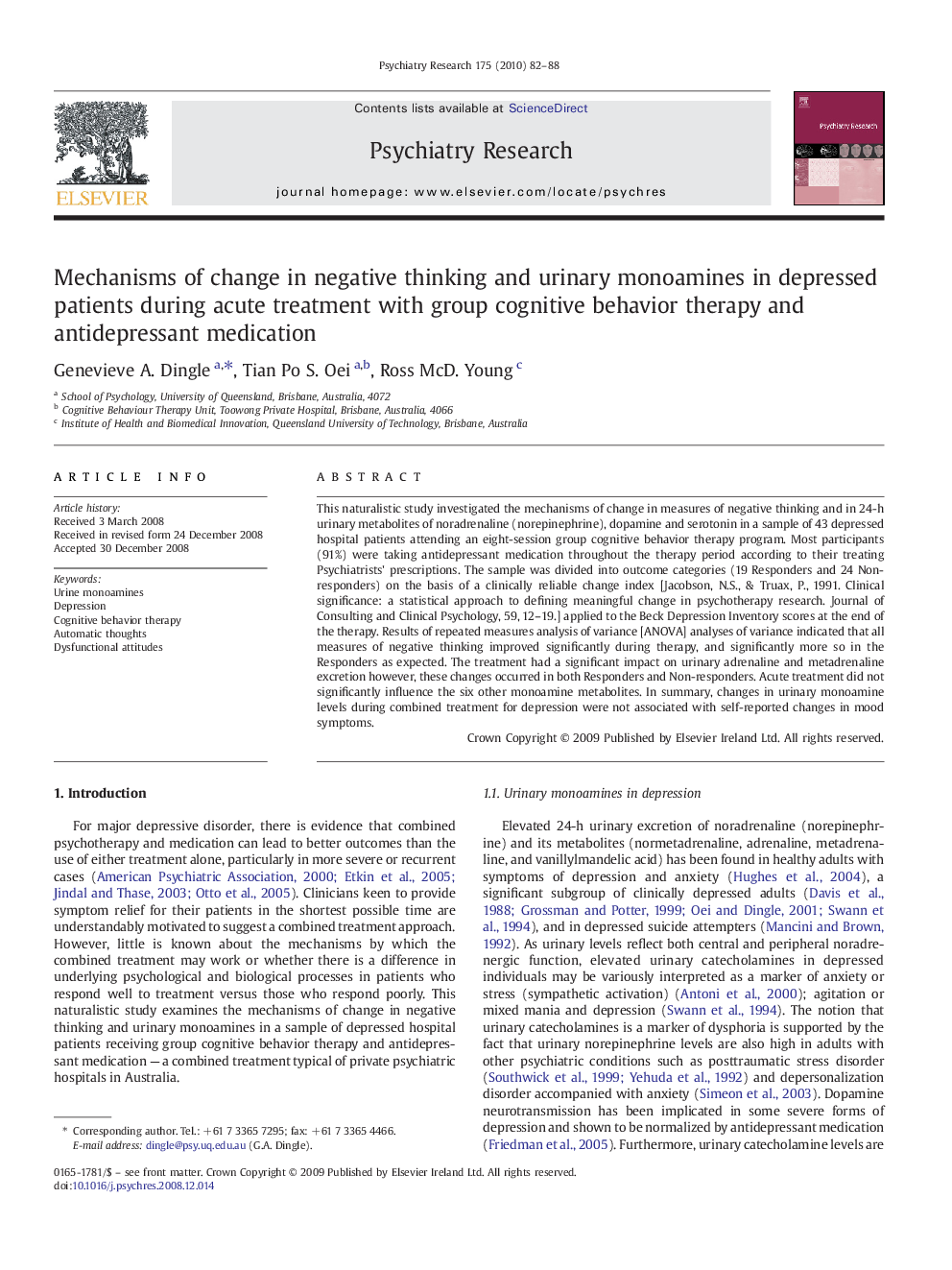| Article ID | Journal | Published Year | Pages | File Type |
|---|---|---|---|---|
| 333816 | Psychiatry Research | 2010 | 7 Pages |
This naturalistic study investigated the mechanisms of change in measures of negative thinking and in 24-h urinary metabolites of noradrenaline (norepinephrine), dopamine and serotonin in a sample of 43 depressed hospital patients attending an eight-session group cognitive behavior therapy program. Most participants (91%) were taking antidepressant medication throughout the therapy period according to their treating Psychiatrists' prescriptions. The sample was divided into outcome categories (19 Responders and 24 Non-responders) on the basis of a clinically reliable change index [Jacobson, N.S., & Truax, P., 1991. Clinical significance: a statistical approach to defining meaningful change in psychotherapy research. Journal of Consulting and Clinical Psychology, 59, 12–19.] applied to the Beck Depression Inventory scores at the end of the therapy. Results of repeated measures analysis of variance [ANOVA] analyses of variance indicated that all measures of negative thinking improved significantly during therapy, and significantly more so in the Responders as expected. The treatment had a significant impact on urinary adrenaline and metadrenaline excretion however, these changes occurred in both Responders and Non-responders. Acute treatment did not significantly influence the six other monoamine metabolites. In summary, changes in urinary monoamine levels during combined treatment for depression were not associated with self-reported changes in mood symptoms.
